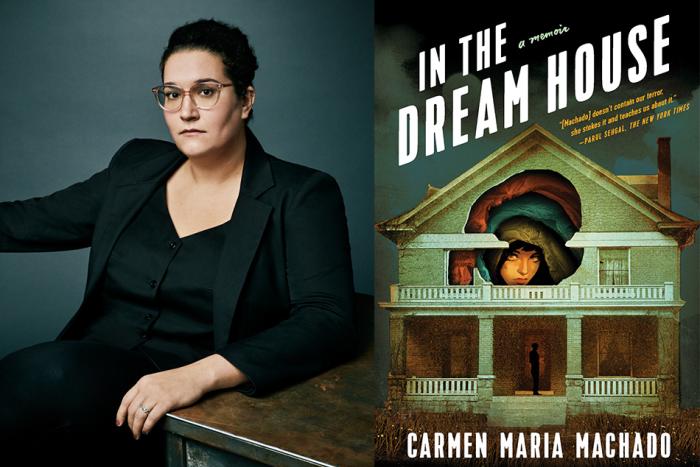Laura McPhee-Browne’s debut novel Cherry Beach (Text) is about friendship, but it's also a love story, in that your earliest best friend-ship can be the most comforting and cruel form of romance; a potential blueprint for any kind of intimacy thereafter.
Shifting between Toronto, Canada, and Melbourne, Australia, we follow Hetty and Ness, two young women who embark on a new life together overseas. They are the kind of friends who “took everything as an omen”: the good things that happened to them meant they’d made the right decision while every obstacle or mishap threatened to take them further away from the life they’d imagined for themselves. And yet the universe has a plan for them that they aren’t entirely aware of.
The novel frequently reveals how social anxiety disorder can color the reality of growing up. Ness, shy and gentle, begins to learn from a young age how loyalty can be a blessing when navigating competitive environments: she understands that kids at school see her as cool because her new friend Hetty treats her like she is important. When older, and living in a share house, she interprets her housemate’s dog nuzzling at her legs to mean "don’t worry." She performs incidental, everyday okay-ness when everything’s overwhelming.
The endless possibility of a place hums throughout Cherry Beach, too: having a heart-to-heart with a friend over sweaty jugs of beer at the Grace Darling Hotel in Collingwood, Melbourne, or kissing in the noodle aisle of a supermarket in Koreatown, Toronto; the lack of a “grand hurrah” when walking out through the airport doors after a long time away. Here, home isn’t just a place on a map either—it can also mean a person you’ve known for a very long time, especially when it’s time to move on from the bubble you’ve created with them.
Laura and I spoke to each other leading up to the launch of Cherry Beach in Melbourne.
Nathania Gilson: When I read Cherry Beach, I was reminded of the way Mary Gaitskill rejects traditional female ideals of goodness, kindness, and beauty in Bad Behaviour, and the messy friends-like-family intensity of the Neapolitan novels. I wonder what you hoped to contribute to the canon of queer romance novels, or literature that explored both the most difficult and most tender parts of female friendship?
Laura McPhee-Brown: I wanted to contribute to the canon of queer romance novels simply because there aren’t enough of them, and when I was growing up I would have loved to read more queer fiction.
I also loved the Neapolitan novels in part because the love between Lenu and Lina was almost indefinable. That passion and nuance is something I’ve experienced in all my close female relationships, but it hasn’t always been written about.
I wonder if Hetty is a modernization (almost Melbourne-ization) of the literary “bad girl” archetype. There’s a line in the novel (from Ness’s perspective) that goes, “Later, I would wonder what it would be like if Hetty and I had a different kind of friendship, or if we were different people: the kind who laid it all out and hoped for the best.” How did Hetty come to life in your head; what were your hopes for her as a character your readers would meet, and form their own ideas about?
It’s funny—many of the people I’ve spoken to who have read the book so far have seen Hetty as a rebel; a bad girl and the life of the party. But when I was writing her, I saw Hetty as lost, and ramshackle, and in no way confident, despite her charisma and her beauty.
I wanted her to be a bit of an enigma; I wanted her to be seen by the reader the way Ness saw her, and for her to come undone in the reader’s mind as she came undone in Ness’s mind.
I also wanted to write a character that was anxious about life in a different way to how I am anxious about my own life, because I thought that would be fun to try and do.
Hetty seems to glide through many parts of existing that other people around her find difficult, but at her core she is an anxious being. She just doesn’t quite know how to voice that anxiety, or how to slow down and look at it.
There’s a lovely observation about Canadian-ness versus Australian-ness in the novel as well: how Canadians are conscientious and polite whereas Australians can speak like “brazen weed.” How much of the novel involved showing readers the tendencies toward cultural miscommunications; and how much of it was about how opposites attract, in friendship and romance?
I never thought of Australians as particularly direct, or brash, or open. I don’t think we necessarily are, but when compared to the average Canadian, our tendency towards self-deprecation and our love affair with camaraderie can feel excessive and pushy.
I don’t think I deliberately set out to explore the idea that opposites attract, but I can see how that came through. I enjoy writing characters that are contemplative and—in particular—characters who are wary, and passive; in part because I am not this way.
I tend towards spontaneity and rushing my decisions, and Ness does not. It’s enjoyable to explore different ways of being through the writing of fiction. I came to this realization recently when talking to my editor and seeing that many of the characters in my short stories are wary, passive, quiet beings.
You’ve published short stories for years in the lead-up to this debut novel. Has the short story form led to any revelations or triumphs that helped you build a muscle or experiment in particular ways when you began writing a novel-length work?
I started writing short stories around seven years ago, and am still writing them now, in an ad-hoc way.
I never, ever thought I would write a novel, and didn’t think I wanted to, until I came back to Australia after living in Toronto, and felt like I wanted to write something bigger than a short story that would be set there.
Writing short fiction has perhaps taught me how to edit and hone and cut the fat. This was helpful when I was writing the first draft of Cherry Beach. I will keep trying to write novels, for the investment in character development and the experience of inhabiting a fictional world, and will write short stories for the way they are like a piece of art, with every word placed perfectly, and every image needing to speak loud and long.
In Cherry Beach, while shy Ness adores whirlwind Hetty in a way that might never be reciprocated, Ness soon meets Faith; someone who makes her feel safe and comfortable. It was beautiful to come across so many vivid descriptions of how developing a crush on someone can make the body come alive; for it to feel “lush and green” on the inside; for “nothing but fizz” to be held inside a tummy. In a world where it is sometimes easier to pander to masculine ideals of female sexuality, what was your process for writing the sex scenes between Ness and Faith?
I thought about how it felt when I was intimate with a woman in the past.
The way my body felt on the inside and the way my lover’s body was different and similar to mine in a way that felt good and also scary. Then I imagined the characters (the bodies and minds) of Ness and Faith and how it might be between them if they were intimate. Then I just wrote what felt right. I wanted readers to feel a bit sexy reading those scenes, but also to feel like they were bearing witness to a love building, as well as a desire.
What coming-of-age stories made an impression on you in your twenties?
I’m a bit old-fashioned in some ways, and I read a lot of coming-of-age books written in the ’60s, ’70s, and ’80s when I was in my twenties!
My favourite author, Margaret Drabble, writes about the female experience and coming-of-age in Britain beautifully, and her books have always resonated with me despite many of them being written before I was born.
Her first novel, A Summer Bird-Cage, is a tongue-in-cheek, intellectual story about two sisters, and it’s delicious. Possibly my most favourite book ever is The L-Shaped Room by Lynne Reid Banks, another coming-of-age novel set in Britain and written in the 1960s. It’s very dated in some ways, but the way that the characters grapple with what it means to become independent, to be a woman and to have a baby, is timeless to me.
I also love (and re-read often) I Capture the Castle by Dodie Smith. It was published in 1948 but the voice of Cassandra and her observations of her sister Rose’s experiences are so vivid and familiar.
Alice Munro is someone who writes young women growing older so well, and I read her stories over and over in my twenties. Her collection of linked short fiction, Lives of Girls and Women, was revelatory for me.
The novel’s titular beach is in Toronto, Canada. What were your memories of living in Toronto?
Like most people, I am very sentimental about place, and Toronto as a place made a huge impression on me. I lived there for two years from the age of 29 to 31, from 2014 to 2016.
I got to know the city very well by walking the length of it often and also working in a social work job that required me to know the Greater Toronto Area quite intimately.
I wanted to write a book set there so I could re-visit it, I think. Funnily enough, I started writing the first chapter of Cherry Beach while on holiday in Amsterdam one morning early, when I was jet-lagged. It’s possible that being away from home inspires me!
There’s a Margaret Atwood celebrity-spotting scene in the book, and I’m wondering what your thoughts are on meeting your heroes, or being in close—if serendipitous—proximity to famous people you admire?
I’m pretty terrible at meeting anyone I admire, famous or not! I just get very awkward and talk too much, about things that aren’t important, because silence would mean our meeting had failed, in my anxious mind… As much as I’d love to meet the writers I most admire, I don’t think I’d have anything impressive to say, and would likely just gush and go red in the face.
Something I was reminded of in reading Cherry Beach, and spending time with Hetty and Ness, was that old friends aren’t necessarily good friends. In a world that still romanticises traditional heteronormative break-ups, what is it about friendship break-ups that make them deserving of being paid literary homage?
Friendship break-ups can feel just as, and often much more, painful than intimate relationship break-ups, I think. We show so much of ourselves to our friends, and tell them things we don’t tell our partners, because we believe they will always be there.
I have experienced the break-up of a relationship with a very close friend and found that it was necessary to grieve it for a long time.
So much of the heart is involved in a close friendship. You can share such a long history and so many of your memories with this person. I think that’s worth writing about.
The ending of Cherry Beach (without giving it away!) reminded me of this idea of how personal growth in reality exists on a continuum. When Ness realises and tries to accept that maybe she and Hetty didn’t really want the same things after all, someone tells her, “It takes a lifetime to accept that we can’t stop the waves from coming.” Yet self-help literature, historically, has been steeped in actionable takeaways; in the dream of “fixing” an issue. How do you grapple with endings as a writer? How much of real life influences how you decide where a story ends?
When writing short fiction, I’ve always wanted to be quite instinctual when deciding on how to end something, and this has often meant my stories are a bit open-ended, and leave people wanting to know more. I don’t know if that’s a good thing! When writing Cherry Beach, I had an idea of the overall plot as I wrote it, but the ending I submitted to [my publisher] and my editor David wasn’t the ending it has now. David helped me understand how the book could end in a way that felt whole.
I think that’s something I struggle with, in my writing and in my life—letting things go. I feel such grief when I have to end something, even if I know it’s necessary, or preferable. I think I struggled with that a bit when I tried to end the book.
What advice would you have for anyone with a manuscript tucked away in a drawer somewhere; especially if it’s one they haven’t shown to anyone yet?
I don’t know that I have anything very helpful to say to a budding writer, or to someone who has written an entire manuscript, which in itself is such an achievement.
I know that I have had to learn a lot about myself over the last ten years of my life and this self-knowledge has been helpful, because it has meant I have been able to have faith in my writing process, and keep at it despite the setbacks.
If you can foster something like that, you will keep writing and you will put yourself out there: the two most important steps to getting published.






